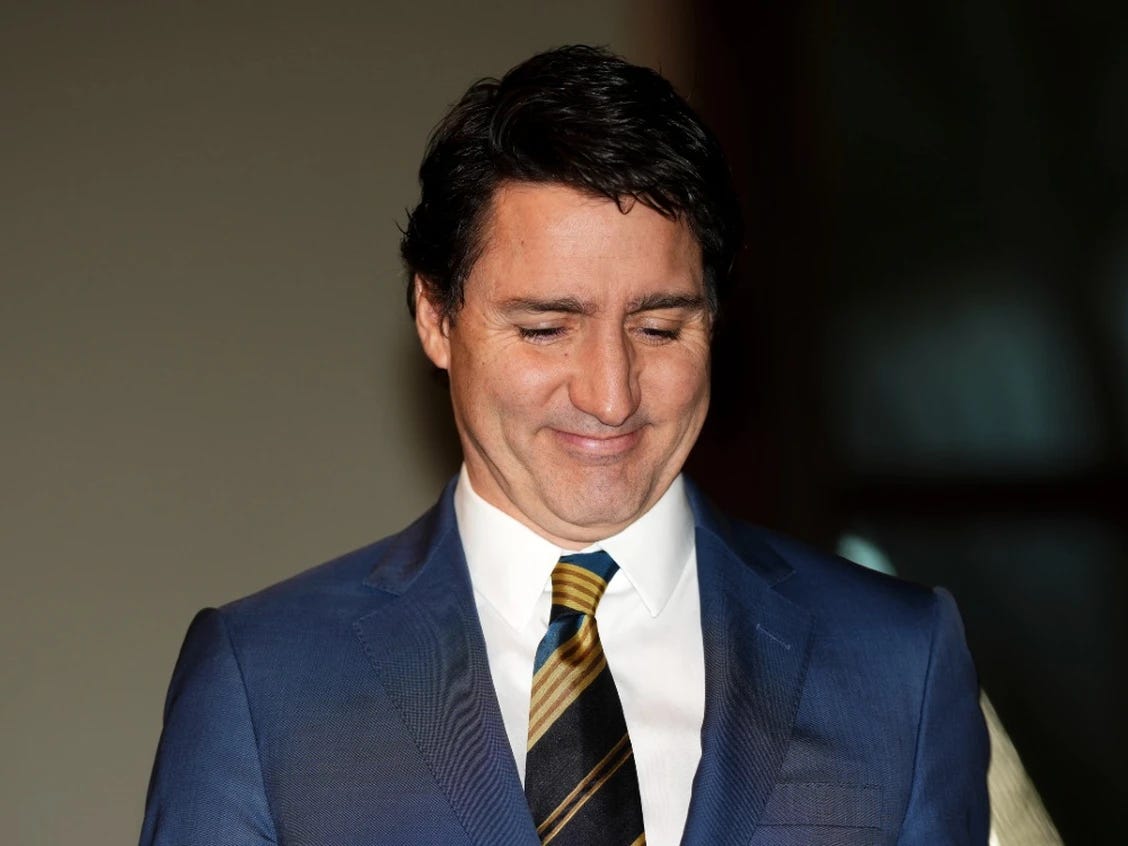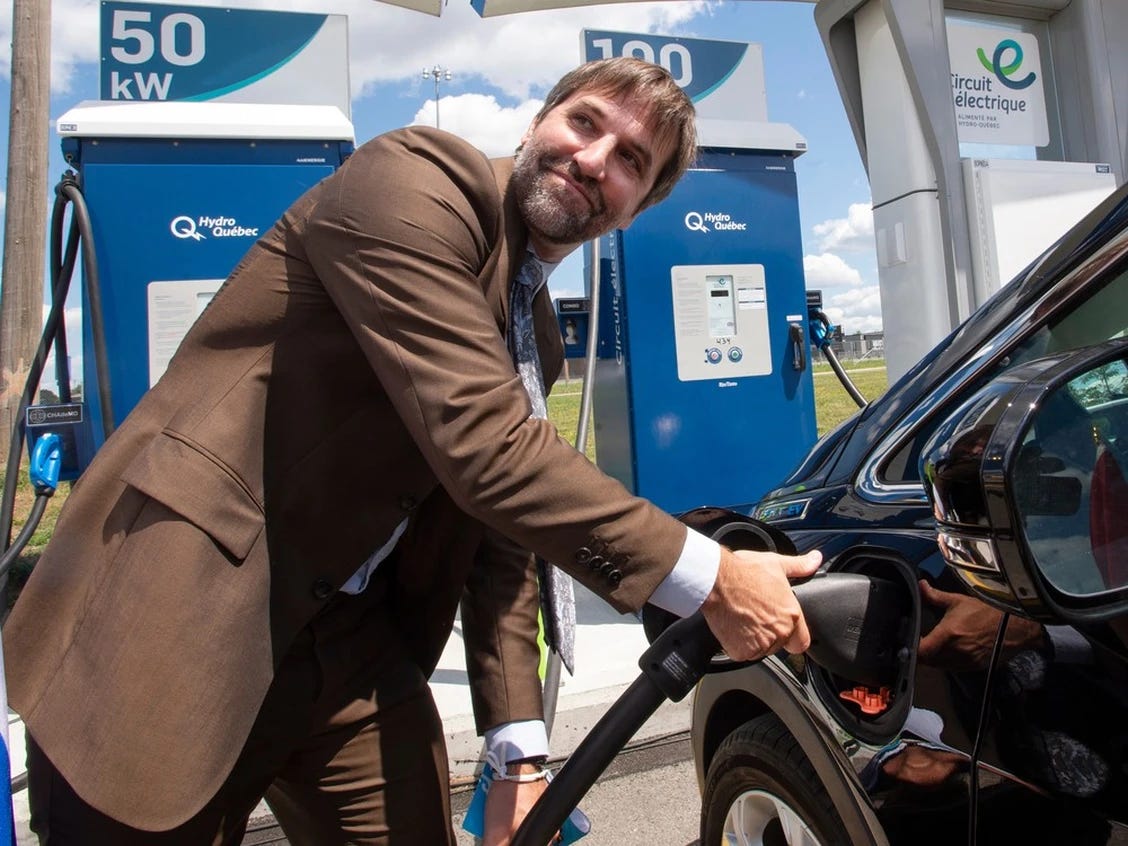Alberta Weekly News Breakdown: RCMP Head Advisor resigns, Trudeau's Tropical Holiday, and a Merry Christmas
Unlocking the Future of Digital Currency: The Rise of Purpose-Bound Money (PBM)
The emergence of "purpose-bound money" (PBM) in the realm of digital currency. PBM refers to digital currency with specific conditions and restrictions set by issuers, such as designated uses, recipients, spending limits, and expiration dates. Examples include Amazon envisioning PBM for conditional payments, and a demonstration at the Singapore Fintech Festival where attendees received digital vouchers redeemable at specific merchants. The concept is not entirely new, with China's digital yuan and Sweden's CBDC exploring similar features.
PBM utilizes smart contracts, acting as a "wrapper" defining usage parameters, and Singapore's central bank sees potential applications across various digital currencies. The article raises concerns about fungibility and privacy, as restricting money use may impact its interchangeability and raise privacy issues. Despite these concerns, PBM's potential use cases include government disbursements, demurrage to discourage hoarding, and specific applications like contractual agreements, e-commerce, and philanthropy.
The Monetary Authority of Singapore (MAS) is actively exploring PBM through Project Orchid, aiming to uncover potential use cases. While PBM has diverse applications, it may likely coexist with central bank digital currencies (CBDCs), with global interest in exploring programmable money features. The European Data Protection Supervisor (EDPS) views programmable money as an "important design choice," and the International Monetary Fund (IMF) suggests it could enhance capital-flow management. As industry players show interest in designing PBM features, the article concludes with insights from Amazon's director of product management, emphasizing the role of merchants in shaping consumer confidence in this evolving form of money.
Resignation Sheds Light on RCMP Oversight Challenges: Head of Advisory Board, Kent Roach, Points to Government's Lack of Commitment
Kent Roach, the head of the RCMP's Management Advisory Board (MAB), resigned in frustration with the federal government, citing a lack of commitment to enhancing the MAB's oversight role over the RCMP. Roach questioned the board's independence and powers, emphasizing financial ties to the RCMP and exclusion from key discussions, such as the future of RCMP contract policing. The government is reviewing RCMP's contract obligations amid concerns about its ability to fulfill federal mandates. Roach highlighted tensions between his academic role and MAB chair responsibilities. Despite efforts to increase transparency, challenges, including a capacity issue for posting reports, persisted. The Nova Scotia Mass Casualty Commission urged MAB to ensure RCMP accountability. Roach thanked the RCMP but expressed disappointment with the government's lack of commitment. The remaining MAB members acknowledged Roach's role in modernizing the RCMP and thanked him. Public Safety Minister Dominic LeBlanc's office expressed gratitude for Roach's work and emphasized ongoing support for the board's independent oversight.
Parks Canada Successfully Eradicates Invasive Deer on Sidney Island, Paving the Way for Ecological Restoration
Parks Canada recently completed the first phase of its invasive fallow deer eradication project on Sidney Island. During the cull, seven out of 84 deer were confirmed as native black-tailed deer. The entire deer population on the island, including both invasive fallow deer and native black-tailed deer, has been eradicated. Parks Canada collaborated with marksmen, First Nations harvesters, and community members to maximize the use of harvested materials. About 800 kilograms of meat were recovered and distributed within local communities. The humane treatment of animals was emphasized, and the majority of deer were dispatched with a single shot. The second phase of the project is planned for fall 2024 to spring 2025, with temporary fencing and marked zones to be implemented. Parks Canada aims to work closely with the community in planning and executing the next phase. The restoration of the island is expected to begin in spring, with optimism for the re-establishment of black-tailed deer.
Rare Chance of Snowless Christmas: Alberta Cities Face Trifecta of Winter Absence
The article discusses the unusual lack of snow in southern Alberta leading up to Christmas, potentially resulting in a rare occurrence of all three major cities—Calgary, Red Deer, and Edmonton—experiencing a snowless Christmas morning. The absence of snow is attributed to above-seasonal temperatures prevailing across Canada this month, hindering the formation and maintenance of snowpack. The last instance of all three cities simultaneously having a snowless Christmas occurred in 1997 during the El Niño-influenced winter. Although there is a slim chance of light snowfall before Christmas, it remains uncertain whether it will be sufficient to qualify for an "official" white Christmas, with Red Deer having a slightly better chance than the other cities.
Concordia University Launches Generous Bursaries to Counter Quebec's Tuition Hike: Up to $4,000 for New Out-of-Province Students
Concordia University is introducing the "Canada Scholars Award," offering bursaries of up to $4,000 for new out-of-province undergraduate students to counter Quebec's tuition hike. The award, based on grades ranging from B- to A+, aims to maintain diversity amid concerns that tuition increases might deter students from studying in Quebec. McGill University also recently announced a $3,000 award for new undergraduate students in response to the tuition hike, which raises fees for non-Quebec students at English universities from $9,000 to $12,000 starting in the 2025-2026 academic year. The government, facing criticism, lowered the original $17,000 increase and added a language proficiency requirement for non-Quebec students, excluding Bishop's University. Concordia President Graham Carr emphasizes the university's commitment to attracting students while addressing financial concerns. Additionally, Concordia offers a one-time $2,000 award for undergraduates transferring from other provinces and various bursaries for graduate students. English universities in Quebec criticize the government's approach, anticipating financial setbacks and enrollment decline. McGill warns of a potential $94 million revenue cut, while Concordia estimates a $32 million loss in four years.
PM Trudeau's Tropical Getaway: Family Vacation in Jamaica Over the Holidays
Canadian Prime Minister Justin Trudeau will be on a family vacation in Jamaica from December 26 to January 4. Despite his separation from Sophie Gregoire Trudeau earlier in the year, they will travel together with their immediate family. The Prime Minister’s Office consulted the federal ethics commissioner, ensuring that the family will cover their stay's cost and reimburse travel expenses on a government plane. Trudeau will stay in contact with staff and stay informed on current issues during his vacation.
Canada's Bold Move: 100% Zero-Emission Cars by 2035 Sparks EV Revolution, But Alberta Faces Hurdles
The federal government in Canada plans to boost electric vehicle (EV) adoption by requiring manufacturers to meet production targets. The goal is for 100% of cars for sale in Canada to be zero-emissions vehicles (ZEV) by 2035. Alberta faces challenges, including the need for extensive charging infrastructure to address "range anxiety." The government allows flexibility, permitting automakers to buy credits if targets are not met. Despite concerns raised by Alberta's premier, the federal strategy aims to support EV growth, including $1.2 billion for 84,500 chargers by 2029. The province's EV market is growing, but challenges remain, with questions about grid support and infrastructure development. The City of Calgary has its own plan to accelerate EV adoption through incentives and infrastructure requirements.










MERRY CHRISTMAS to you and yours as well